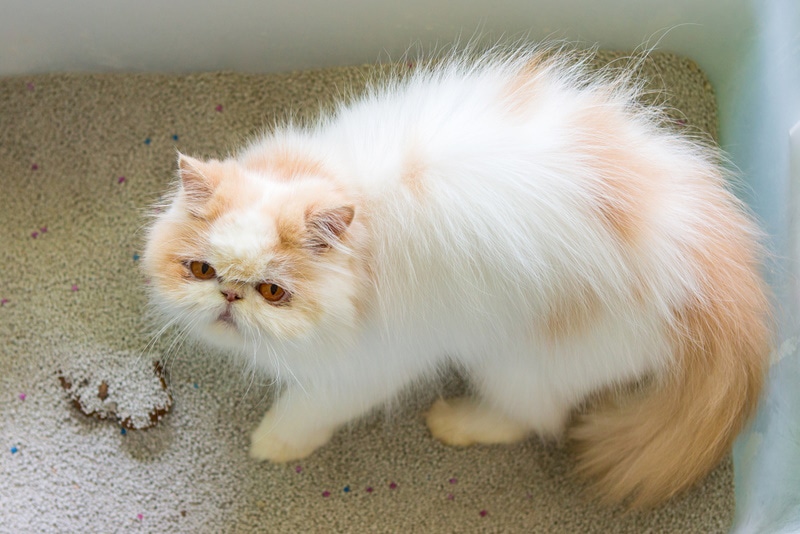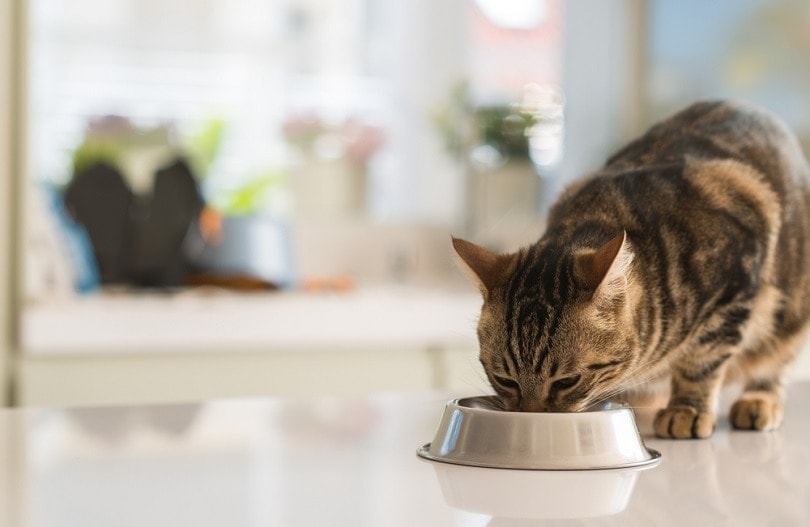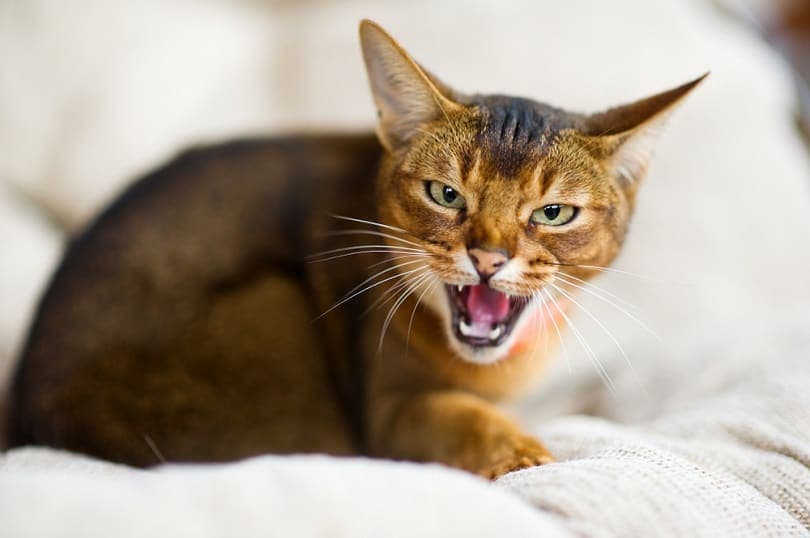Thiamine for Cats: 10 Vet Approved Vitamin B1 Rich Foods
Updated on
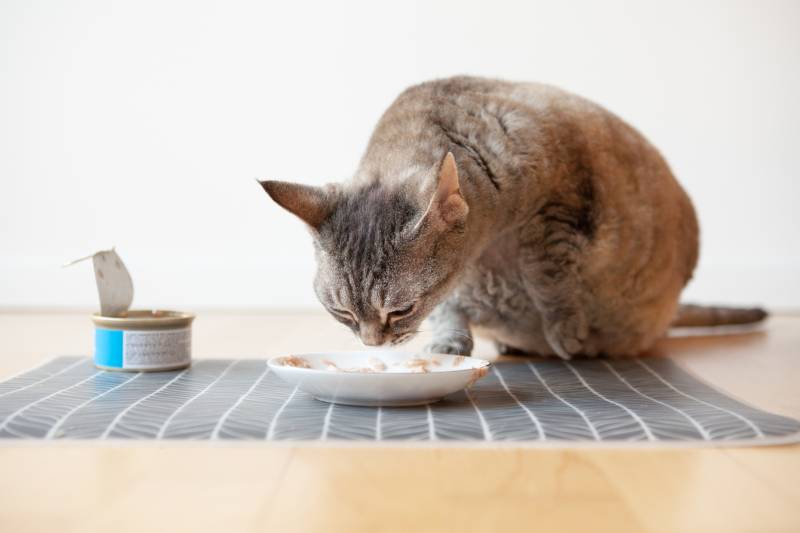
Thiamine or vitamin B1 is an important vitamin that cats need in their diet. Vitamin B1 is found in most healthy and balanced cat foods. However, some cats may benefit from additional thiamine as a supplement, usually if their food is deficient in this vitamin.
This vitamin is considered an essential nutrient for cats, and it helps with your cat’s carbohydrate metabolism. Thiamine should be part of your cat’s diet since a cat’s body only stores a small amount of this vitamin. Cats rely on getting thiamine from their food, and diets that lack this vitamin could lead to a thiamine deficiency.
Aside from feeding your cat a high-quality diet that contains the recommended amount of thiamine, feeding vitamin B1-rich foods can be useful for supplementation purposes and help prevent any nutrient deficiencies.
Here are six vitamins B1-rich foods you can incorporate into your cat’s diet:
The 10 Vitamin B1 Rich Foods For Your Cat
1. Nutritional Yeast
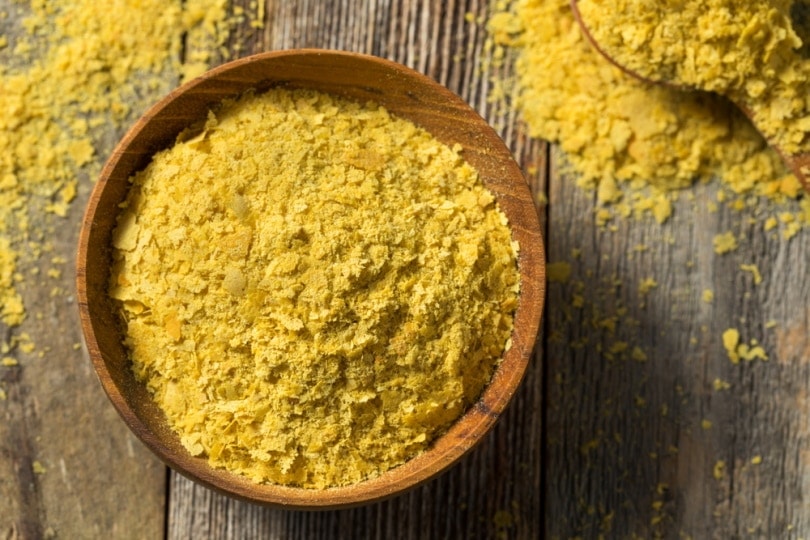
This health supplement is rich in vitamin B, including high concentrations of vitamin B1. Not only is nutritional yeast high in thiamine, but it contains selenium, zinc, and other trace minerals that can benefit your cat. When it comes to feeding nutritional yeast to your cat, you can give them ¼ teaspoons a few times a week.
Smaller cats should have 1/8 teaspoon of nutritional yeast. The yeast can be sprinkled over your cat’s food, ideally in an organic form without any harmful preservatives or additional ingredients.
2. Pork
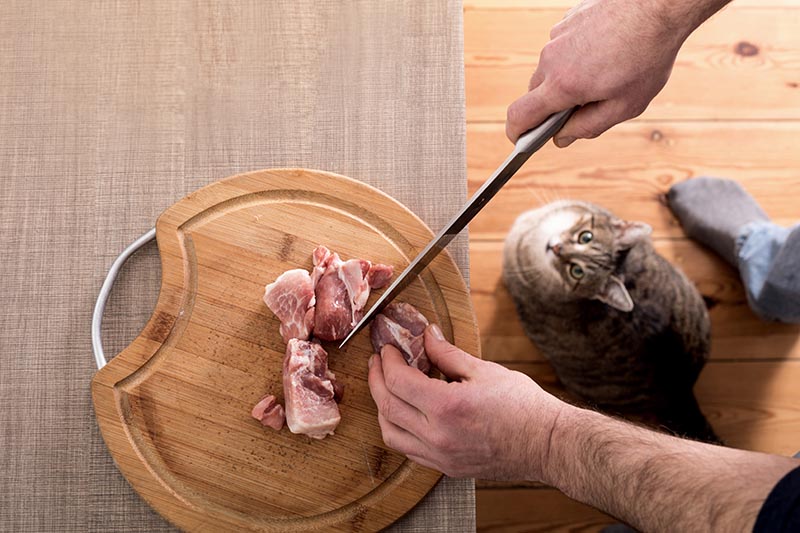
Pork is a good source of thiamine, and it is probably more readily eaten by most felines than grains, nuts, and beans that contain thiamine. Pork can be fed to cats occasionally, but it needs to be cooked thoroughly beforehand or parasites and bacteria on the pork can make your cat very sick. The pork should not be seasoned, as plain pork is the safer and better option for your feline.
You should only feed your cat a small amount of cooked pork in moderation alongside their balanced staple diet.
3. Seaweed
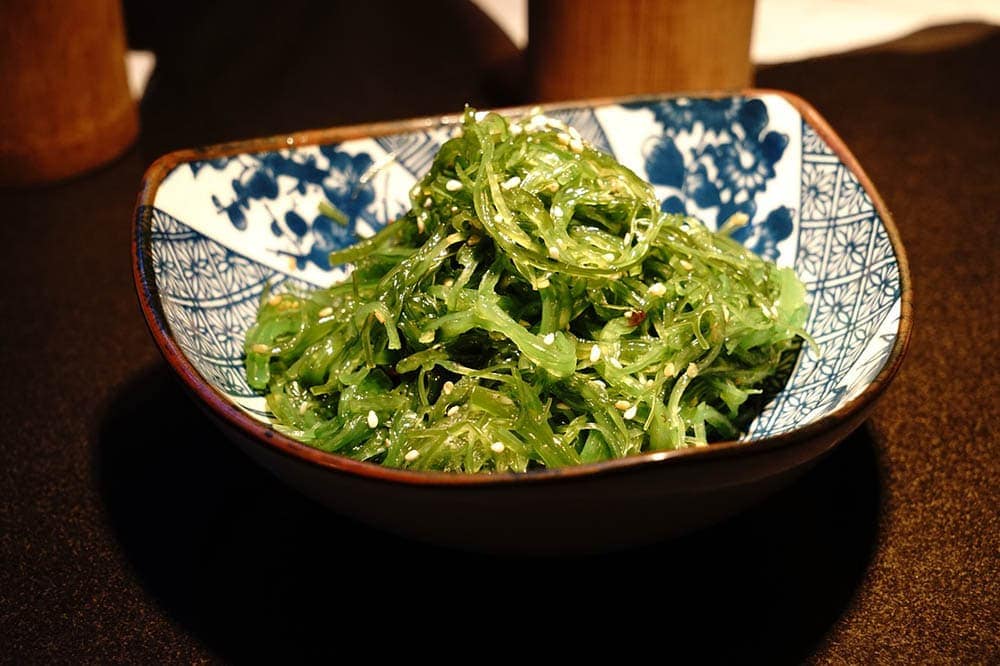
Seaweed contains many beneficial nutrients for cats, including thiamine. Both raw and cooked seaweed is safe for cats, but raw seaweed has more nutritional benefits than the cooked version. Wakame is a great seaweed to feed your cat, but you can also feed Acadian sea kelp, nori, and dulse. Your cat should only consume seaweed in moderation, and it should be commercially sourced, since it can be high in iodine and various contaminants.
4. Black Beans
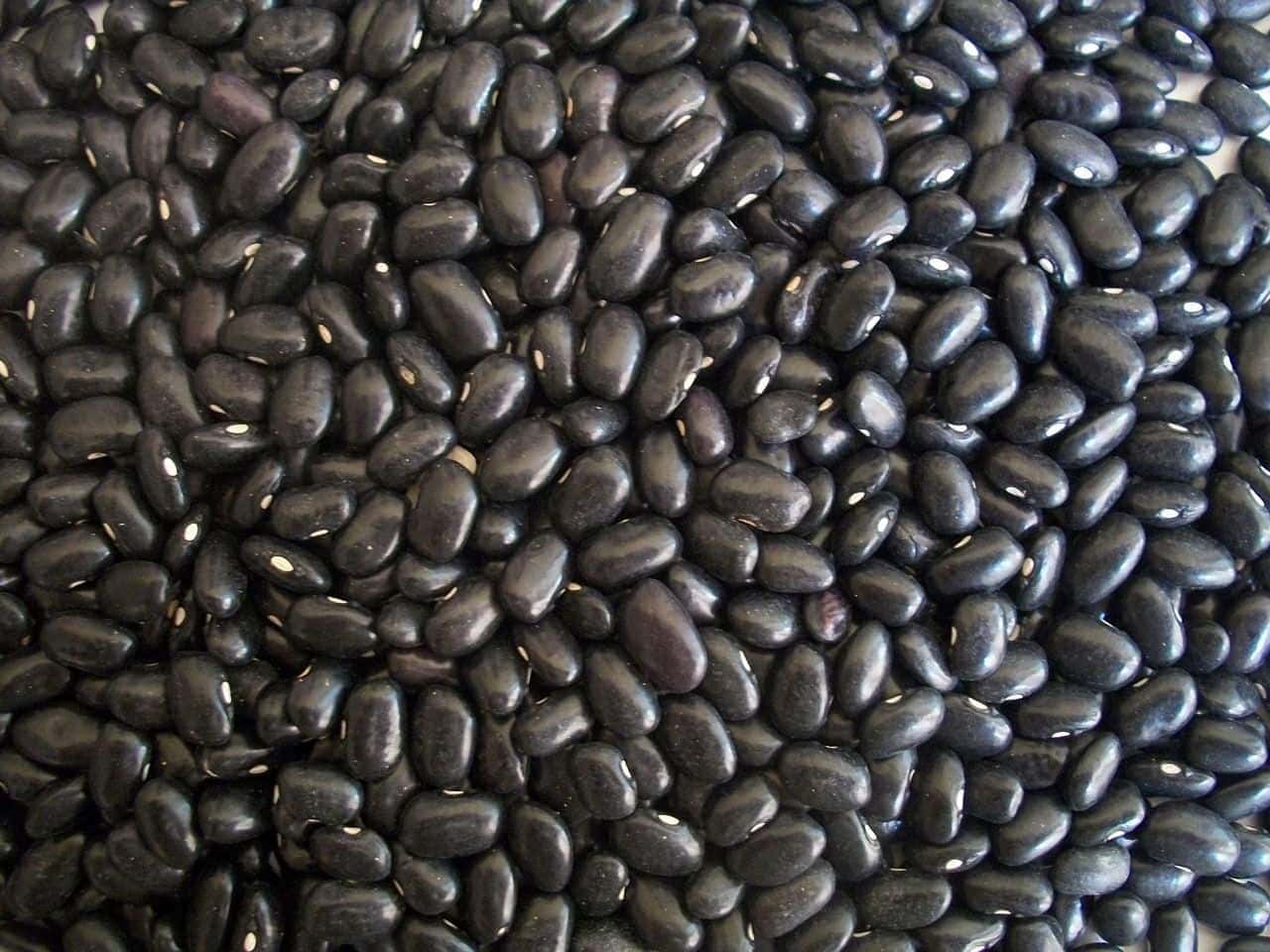
Black beans are rich in a variety of nutrients that are great for your cat, including thiamine, calcium, phosphorus, and iron. However, these beans should be fed sparingly since they contain saponins. Most cats may not like the taste of black beans, so they can be mixed into wet food or fed with their favorite snack or food topping.
5. Brown Rice
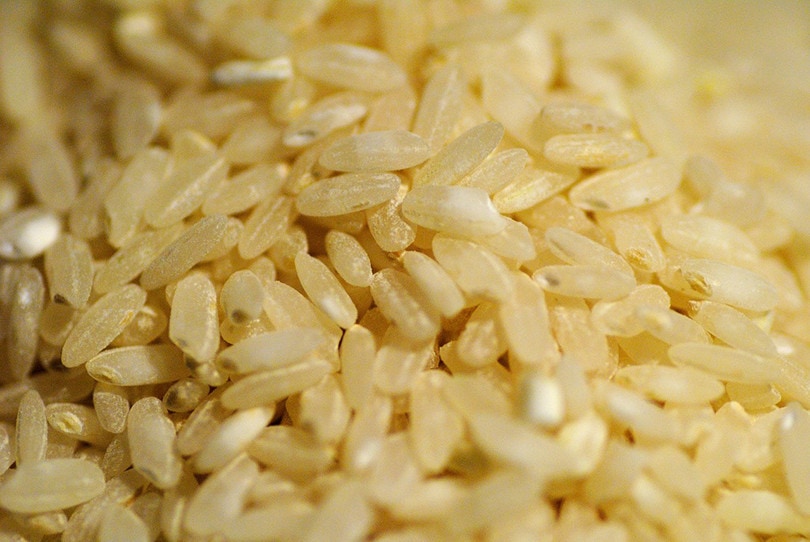
Brown rice is a good source of thiamine, and it is safe to feed your cat. In comparison to white rice, brown rice seems to have more nutritional benefits for a cat. Aside from containing a decent amount of thiamine, brown rice is high in fiber and easy for your cat to digest.
You can mix brown rice with your cat’s main food in small quantities in moderation, and most cats will willingly eat brown rice. The rice should be cooked before feeding to your cat and contain no sauces and seasonings meant for human consumption.
6. Green Split Peas
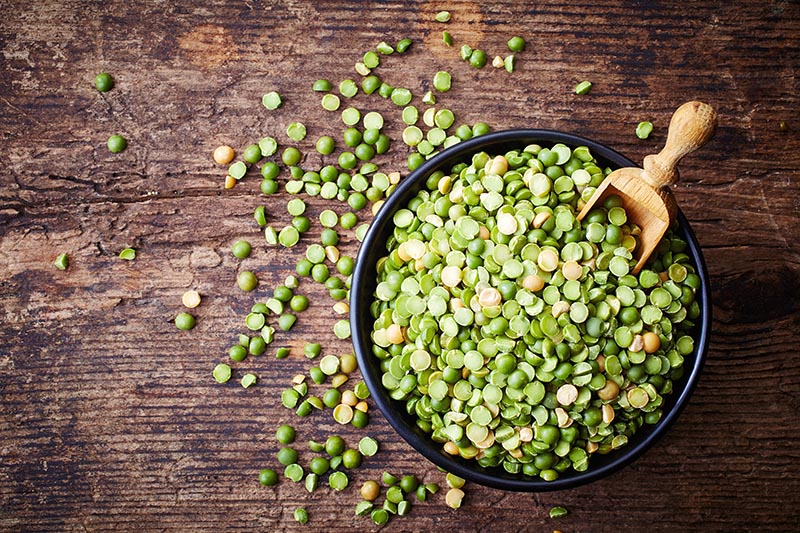
Pees are not only safe for cats to eat, but they are rich in thiamine and plant-based proteins. Plus, green split peas are commonly found in limited-ingredient cat foods. You can easily prepare green split peas for your cat by boiling them. Once soft, you can feed the plain peas to your cat or add them to their staple food.
7. Mung Beans
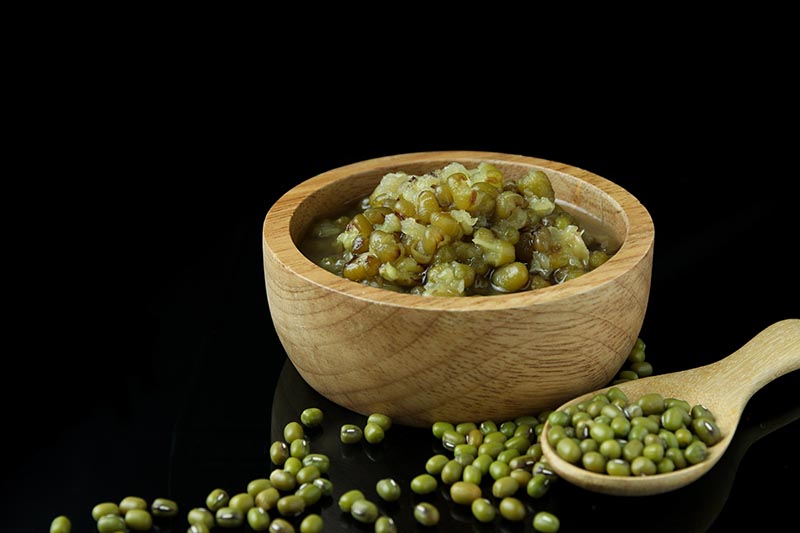
Mung beans are not only high in vitamins A and C, but they contain a decent amount of vitamin B1. These beans are safe for cats to eat, and provide a low-fat snack for a cat that should be fed in moderation. Before feeding mung beans to your cat, ensure that they have been cooked thoroughly.
Mung beans contain lectin, which does not make them ideal for cats who have sensitive stomachs or known gastrointestinal problems. Boiling raw mung beans for 30 minutes in hot water on a stovetop will ensure the lectin in these beans is limited.
8. Sunflower Seeds
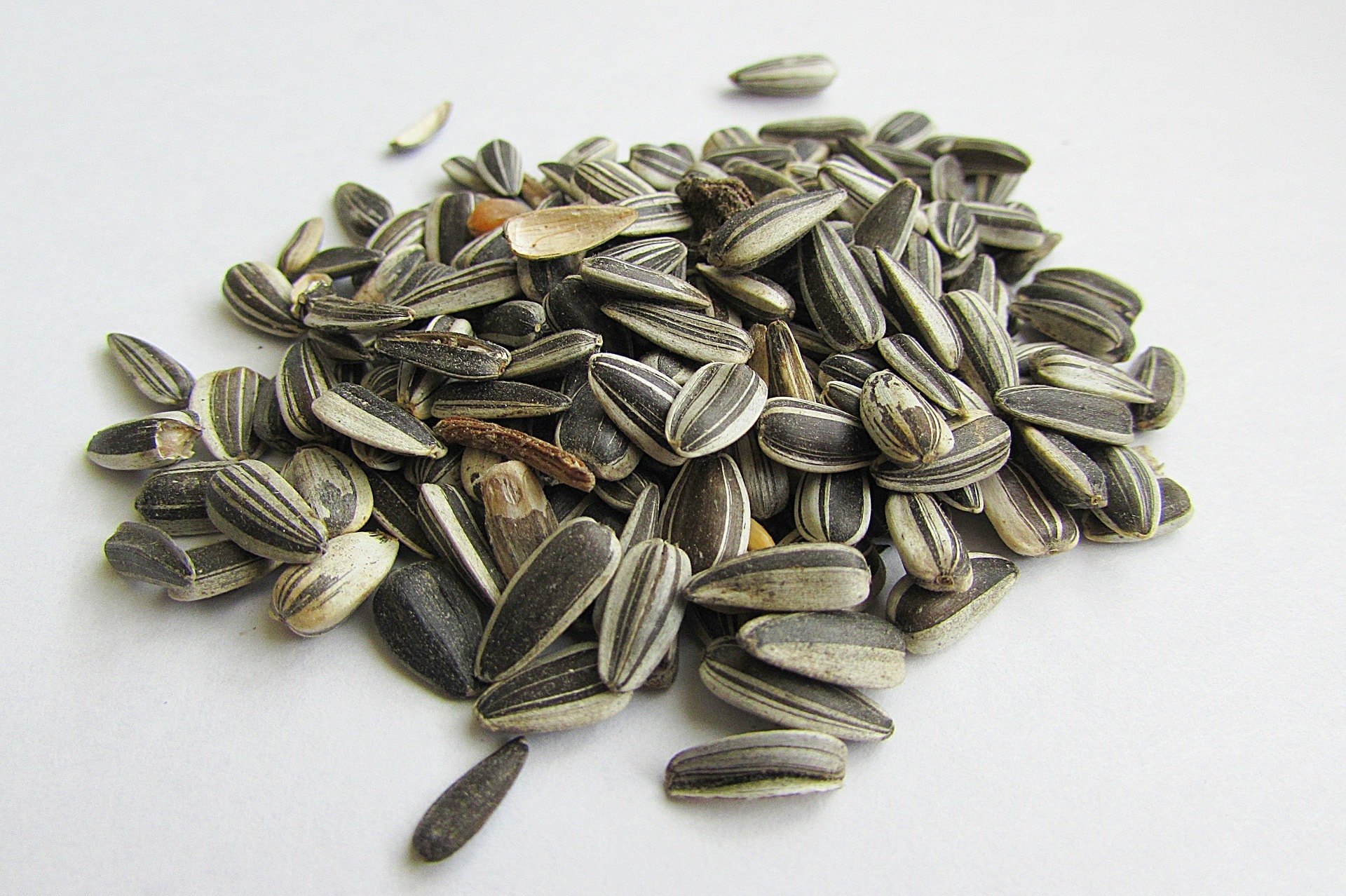
A healthy seedy superfood to add as a topping over your cat’s food is deshelled sunflower seeds. Sunflower seeds are particularly rich in thiamine and healthy fats that are beneficial for your cat. You can either ground the seeds into a powder, feed them as a topping, or mix in organic sunflower seed oil into your cats’ food.
Avoid feeding shelled sunflower seeds to your cat, since it makes them difficult for your cat to open and can injure their mouth.
9. Beef Liver
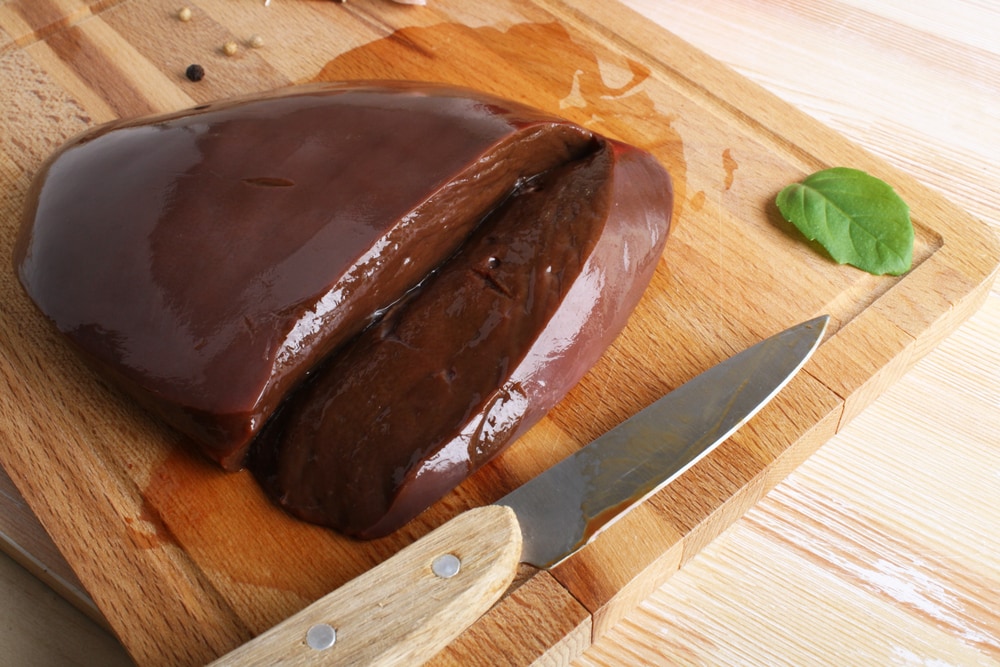
For meat-loving felines, beef liver is super high in thiamine and a healthy snack for cats. Beef liver is also high in lean protein and can be fed as a part of your cat’s daily diet. It can be fed alongside your cat’s staple diet in appropriately sized quantities, or it can be fed as a treat to your cat. Certain raw cat food diets will also include beef liver in the food. Beef liver should be fed plain to cats, and the tinned variety or food-grade raw beef liver is safe for cats.
10. Cooked Salmon
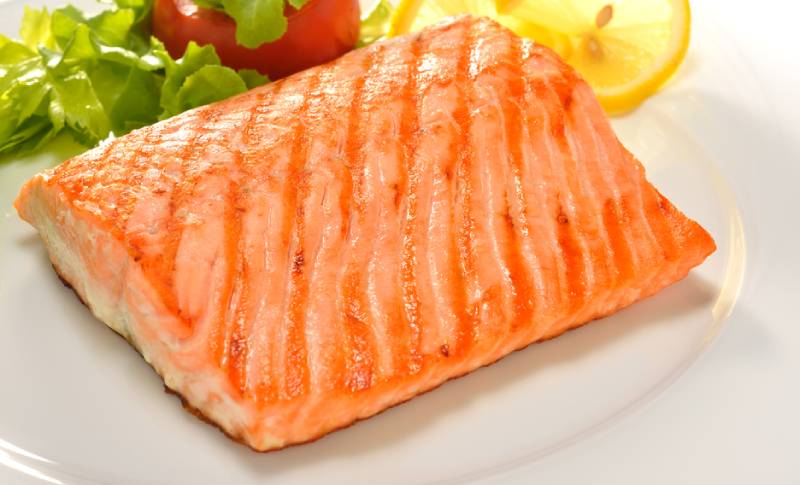
Salmon is a great food to feed your cat, and it is a source of thiamine and other essential nutrients. Cooked salmon is the better option than raw salmon, and this is because heating limits the enzyme known as thiaminase which breaks down thiamine in the body.
By cooking salmon before feeding it to your cat, you get to offer them the benefits of a thiamine-rich food without too much of the thiaminase enzyme. Keep in mind that high heat can also damage the thiamine content in the salmon.
Thiaminase can also be found in other types of fish and shellfish, but be sure to monitor the number of raw fish your cat eats to prevent a thiamine deficiency.
Signs Your Cat Needs More Thiamine in Their Diet
Always speak with your veterinarian before adding supplements such as thiamine to your cats diet. By including thiamine-rich foods in your cat’s diet or as a supplement, you can help to prevent your cat from becoming deficient in this vitamin.
If you are unsure whether you should supplement your cat’s diet with additional thiamine, here are some of the signs a cat with a thiamine deficiency may show:
- Vomiting
- Poor appetite
- Weight loss
- Excess salivation
- Neurological signs (dilated pupils, opisthotonos, ventriflexion, incoordination)
Note: If your cat is showing signs of a thiamine deficiency, it will need to be taken to a veterinarian.
Now that you know what you can safely feed your cat, it’s just as important to find a bowl that supports their health and well-being. With whisker-friendly bowls and a wide tray to catch any spills, our Hepper NomNom Cat Bowl is our favorite option.
Conclusion
Your cat will greatly benefit from thiamine supplements in their diets, especially if their staple food contains the thiaminase enzyme, or lacks enough thiamine to keep your cat healthy. Before choosing a staple diet for your cat, always make sure that the food contains the essential vitamins and minerals your cat needs to stay healthy, including thiamine or vitamin B1.
Featured Image Credit: Veera, Shutterstock


